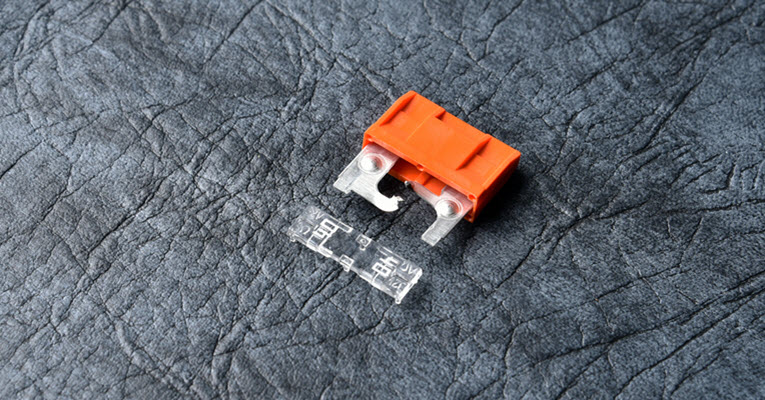Blown fuses can cause multiple problems in your Volvo. Anytime something isn’t working properly in your car, you want to get it to a trusted mechanic for diagnosis. Many issues can be addressed proactively by using a high-quality automotive repair and maintenance center but sometimes, a fuse will blow, leaving you in need of help.
In this article, we will discuss the function of fuses in your Volvo, why they malfunction, and what to do when they blow.
What does a fuse do?
Before we address reasons for blown fuses in your vehicle, let’s first look at what a fuse is and what it does in your car. A fuse is a small electrical component usually made with a plastic casing and with a thin wire inside. In the most general sense, a fuse prevents damage to the vehicle’s wiring system due to an increase or decrease of electrical current. In short, it’s a safety mechanism that protects the wiring infrastructure of your vehicle.
Every electronic component – radio, dome light, dash lights – in your Volvo has an associated fuse. Fuses vary in size depending on the amount of electricity that is normal for the electronic component in which it is associated. They are typically located in one of two panels called fuse boxes or power distribution centers (PDC). Fuses may protect the device in which they are associated, but their true value is protecting the wiring that connects the device and the power supply.
How does a fuse work?
A fuse is connected within the electrical circuitry between the power supply and the device. An individual fuse may be associated with one component or with many devices in your vehicle. For example, the heated seats and the rear defogger might share the same fuse. A fuse works by melting, and therefore breaking the electrical current when too much electricity runs through the fuse.
What causes a blown fuse?
These are three common reasons why a fuse will blow in a vehicle:
1. Device Failure
If a device in your Volvo stops working, for example, the windshield wiper motor, the motor may still pull power through the circuit. With no opportunity for the current to dissipate, the fuse may blow.
2. Electrical Short
Wires are wrapped in an insulating material that protects them and provides resistance to the current. Over time, the insulating material can dry and crack, leaving exposed wire that will fray. If the frayed wire hits any of the surrounding automotive parts or the body of the car, the current will short and may blow the fuse.
3. Incorrect Fuse Amp or Device Power Need
When replacement parts or fuses are put into your Volvo they need to be the correct part or fuse. For example, if you decide to replace the motor for the windshield wiper blades and you swap out the wrong motor, it may not be the correct part for your Volvo. If the new motor draws more current than was intended for that part, the fuse may blow.
Obviously, you wouldn’t do this on purpose, but it is good to be aware of this situation, because not all shops have the specialized knowledge necessary to work on Volvos. A seemingly simple substitution in a part can cause damage to your vehicle if the mechanic isn’t aware.
You Can Trust Hayes European With Your Volvo
When you blow a fuse in your Volvo, it’s important to understand why. Simply replacing the fuse will only solve part of the problem. An expert automobile service specialist can help identify the root cause and make the necessary repairs before the problem escalates.

Hayes European services the communities of Santa Cruz, Aptos, Soquel, and Capitola in California. We are automotive service specialists and have a combined experience of nearly 80 years.
With 140+ independent reviews on the Internet, Hayes European has demonstrated that clients appreciate our hard work and commitment to service, with an average score of 4.4 out of 5. When it comes to protecting and caring for your Volvo, we know we can get the job done for you. We invite you to stop by or give us a call. Let us show you what nearly 80 years of expertise can mean for the long-term care of your Volvo.
 Mon-Fri: 8:00AM-5:30PM
Mon-Fri: 8:00AM-5:30PM 1125 17th Ave Santa Cruz, CA 95062
1125 17th Ave Santa Cruz, CA 95062
